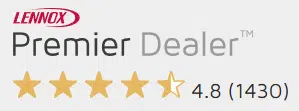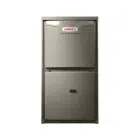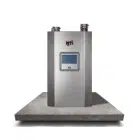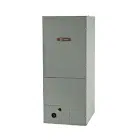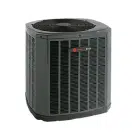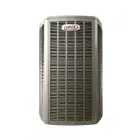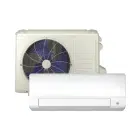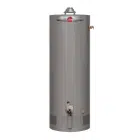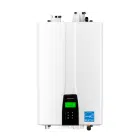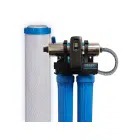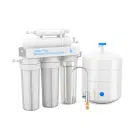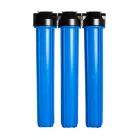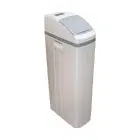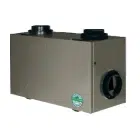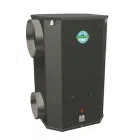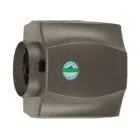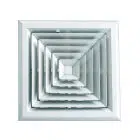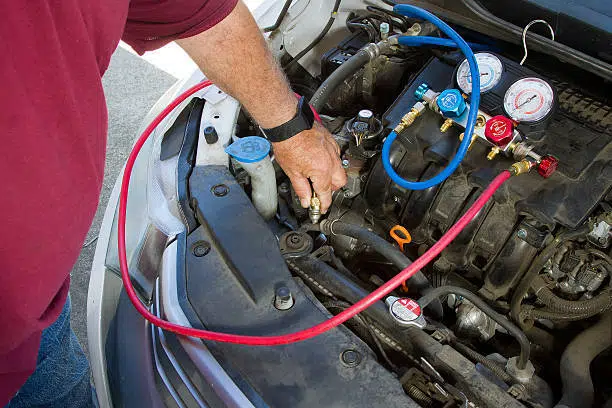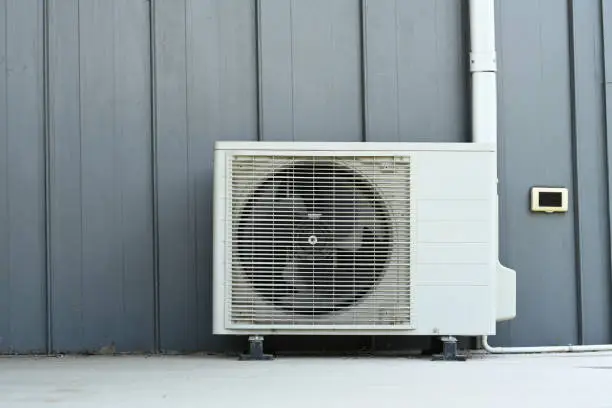
Table of Contents
As summer heat peaks, the last thing anyone wants is an AC not blowing cold air. This issue can transform your home from a cool refuge into an uncomfortable and unwelcoming environment. Understanding the reasons behind an air conditioner not blowing cold air is essential for timely interventions and ensuring your cooling system operates efficiently when you need it most.
Overview of Air Conditioning Systems
Air conditioning systems in Canada come in various forms, including central, split, and window units, each serving the essential function of removing heat from your indoor environment to keep it cool. At the heart of these systems is a cycle that involves refrigerant passing through a compressor, condenser, expansion valve, and evaporator coil, absorbing indoor heat and releasing it outdoors, thereby cooling the air inside your home.
Common Reasons Why AC Is Not Blowing Cold Air
Before diving into the specifics, it’s essential to understand that several factors can contribute to your AC not blowing cold air. Whether it’s a simple fix you can handle yourself or a complex problem requiring professional expertise, understanding these reasons can guide you towards the right solution.
Dirty Air Filter
A leading cause of an AC not blowing cold air is a dirty air filter. This impediment restricts airflow over the evaporator coil, causing the system to lose cooling efficiency and sometimes leading to a frozen coil. Homeowners should check and replace or clean air filters every 1-3 months, depending on usage and environmental factors.
Low Refrigerant Levels
Refrigerant is the lifeblood of any AC system, facilitating the absorption and release of heat. Low refrigerant levels, often due to leaks, can significantly reduce cooling capacity, leading to an AC not working as expected. Signs of low refrigerant include ice on refrigerant lines and a noticeable decrease in cooling efficiency. This issue requires professional attention to repair leaks and recharge the system.
Thermostat Issues
Incorrect thermostat settings or malfunctions can also lead to an air conditioner not blowing cold air. Ensure your thermostat is set to “cool” and that the set temperature is lower than the current room temperature. If problems persist, the thermostat may need recalibration or replacement by a professional.
Frozen Evaporator Coils
Evaporator coils can freeze due to inadequate airflow (often from dirty air filters) or low refrigerant levels. A frozen coil cannot effectively transfer heat, rendering the AC not working properly. Regular maintenance and ensuring proper airflow can prevent this issue.
Dirty Condenser Coils
The condenser coils, part of the outdoor unit, can become clogged with dirt, leaves, and debris, impairing the system’s ability to expel heat outdoors. This inefficiency can lead to an AC not blowing cold air. Cleaning the area around the condenser unit and scheduling annual professional maintenance can mitigate this problem.
Duct Leakage
Leaking ductwork can result in significant cooling loss, especially if the ducts run through unconditioned spaces like attics or crawl spaces. Inspecting ducts for leaks and having them sealed by a professional can dramatically improve AC efficiency and performance.
If your AC is not blowing cold air, HVAC Service Solutions is here to diagnose and solve the problem efficiently. Trust us to quickly restore comfort to your home with our expert services.
DIY Troubleshooting Tips
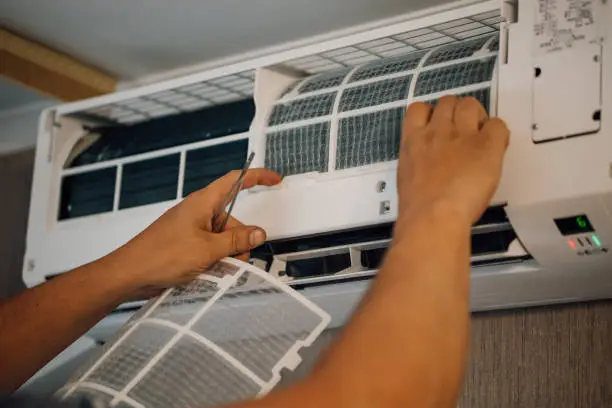
Before you consider dialing for professional help, there are several troubleshooting measures you can undertake to possibly rectify the issue of your AC not blowing cold air. These steps not only can save you time and money but also can be quite enlightening regarding the regular operation of your AC unit.
- Check the Thermostat: Ensure it’s set to “cool” and the temperature is set lower than the current room temperature. It might sound basic, but sometimes the solution is as simple as adjusting the settings. Also, check if the batteries need replacing if your thermostat is not hardwired.
- Inspect Air Filters: A clogged or dirty air filter restricts airflow, leading to a myriad of problems, including the inability of the AC to cool effectively. Check your air filters, and if they appear dirty, replace or clean them (depending on the type). This should be done at least every 90 days, or more frequently if you have pets or a dusty environment.
- Ensure All Registers and Vents Are Open and Unobstructed: Sometimes furniture, curtains, or even dust accumulation can block vents, restricting airflow. Make a quick inspection of all vents to ensure they’re open and unblocked for optimal air circulation.
- Check the Outdoor Unit: The outdoor condenser unit should be clear of debris, leaves, and dirt that can hinder its efficiency. Ensure there’s at least 2 feet of clearance around the unit. Also, look for any visible signs of damage or unusual ice accumulation that could indicate more serious problems.
Maintenance Tips to Prevent Future Issues
Maintaining your AC unit is crucial for its longevity and efficiency. Implementing a regular maintenance schedule can help prevent the issue of your AC not blowing cold air, ensuring it operates smoothly throughout its lifespan.
- Changing Air Filters Regularly: This cannot be overstated. A clean air filter ensures efficient airflow, significantly impacting your AC’s performance and air quality in your home. Depending on your filter type and household (e.g., allergies, pets), change or clean it every 1 to 3 months.
- Scheduling Annual Professional Maintenance Checks: An annual check-up by a professional can catch issues before they escalate into costly repairs. This typically includes checking refrigerant levels, inspecting electrical components, and cleaning the evaporator and condenser coils.
- Keeping the Area Around the Outdoor Unit Clear of Debris: Regularly inspect and clean around the outdoor unit. Removing leaves, dirt, and debris ensures adequate airflow and prevents system overheat and inefficiency.
- Ensuring Your System is Properly Sized for Your Home: An improperly sized AC can lead to overworking, inefficient cooling, and increased wear and tear. If you’re installing a new system or have recently renovated your home, consult with a professional to ensure your AC unit is appropriately sized.
By following these DIY troubleshooting tips and maintenance recommendations, you can often prevent or quickly resolve issues with your AC not blowing cold air, maintaining a comfortable and cool home environment.
Schedule professional AC maintenance by HVAC Service Solutions via the link below and give your air conditioner some TLC.
When to Call a Professional
Identifying when to seek professional assistance is crucial for maintaining the efficiency and longevity of your air conditioning system. While DIY troubleshooting can resolve minor issues, certain conditions signal the need for expert intervention. Here’s how to discern when it’s time to call in the professionals:
- Persistent Problems Despite Troubleshooting: If you’ve gone through the recommended DIY troubleshooting steps and your AC is still not blowing cold air, it’s time to call a professional. Persistent issues often indicate underlying problems that require specialized knowledge and tools to diagnose and repair effectively.
- Unusual Noises or Smells: Any strange noises, such as grinding, hissing, or banging, or unusual smells, like a musty odor or burning, could indicate serious issues. These symptoms can signal anything from a refrigerant leak to electrical problems or even a failing compressor. Such issues not only affect the system’s efficiency but can also pose safety risks.
- Ice Formation on Components: Seeing ice on your evaporator coils or refrigerant lines is a clear indication of airflow issues or low refrigerant levels. While the immediate solution might seem simple, such as changing a dirty filter or thawing the ice, the presence of ice usually indicates a more significant problem that requires professional attention.
- AC System Repeatedly Turning On and Off (Short Cycling): Short cycling puts extra stress on your AC, leading to increased wear and tear and possibly premature failure. This behavior can be caused by a variety of issues, including an oversized AC unit, refrigerant leaks, or electrical problems. A professional can diagnose and fix the root cause of short cycling.
- High Energy Bills: If you notice a sudden spike in your energy bills without a corresponding increase in usage, your AC system may be running inefficiently. Professionals can perform a comprehensive check to identify inefficiencies and suggest repairs or upgrades to help reduce your energy consumption.
Seeking professional help when these signs emerge is vital not only for the immediate repair of your AC but also for its future performance and durability. HVAC technicians have the expertise to accurately diagnose and resolve complex issues, ensuring your system operates optimally and efficiently. Trusting these signs to guide your decision to call a professional can save you time, money, and ensure your home’s comfort throughout the year.
Conclusion
An AC not blowing cold air can significantly impact your comfort and energy bills. By understanding the common causes, performing simple troubleshooting, and maintaining your system, you can ensure your air conditioner operates efficiently. However, recognizing when to call in professional help is crucial for addressing more complex issues and prolonging the life of your AC system.
If you’re experiencing persistent problems with your AC not blowing cold air or require professional maintenance, our HVAC Service Solutions team is here to help. Contact us today to schedule a service appointment and ensure your air conditioning system is ready to keep you cool and comfortable all summer long.
FAQs
Why is my AC running but not lowering the temperature?
This issue could stem from various factors, including a dirty air filter, low refrigerant levels, incorrect thermostat settings, or blocked vents. A clogged air filter restricts airflow, reducing your AC’s efficiency. Low refrigerant, a common issue, prevents the system from cooling the air effectively. Incorrect thermostat settings might cause the system to run without cooling your space. Lastly, blocked vents hinder air distribution, impacting temperature control. At HVAC Service Solutions, we provide diagnostic services to identify and rectify the root cause, ensuring your AC cools your home efficiently.
How often should I change my AC filter?
The frequency depends on several factors, including the type of filter, your system’s usage, and whether you have pets. Generally, it’s advised to replace your air filter every 1 to 3 months. Regular filter changes improve air quality and system efficiency, preventing unnecessary strain on your AC. HVAC Service Solutions offers filter replacement services and can recommend the best filter type for your system, ensuring optimal air quality and efficiency.
What does it mean if there's ice on my air conditioner?
Ice formation on your AC can indicate two main issues: low refrigerant levels or restricted airflow. Both conditions prevent your system from properly absorbing and dissipating heat, leading to the freezing of condensation on the coils. To address this, HVAC Service Solutions can inspect your system, identify the cause, and implement the necessary repairs, such as refrigerant recharge or airflow improvement, to restore your AC’s functionality.
Can a dirty air conditioner cause health issues?
Yes, a poorly maintained AC can circulate dust, mold, and other allergens, potentially leading to health issues like respiratory problems and allergies. Regular cleaning and maintenance, including filter changes and coil cleaning, are crucial. HVAC Service Solutions provides comprehensive cleaning services to ensure your system promotes healthy indoor air quality, reducing the risk of air-borne health issues.
Why is my AC making a loud noise?
Unusual noises can signal mechanical issues, loose components, or a refrigerant leak. A grinding noise might indicate a motor bearing problem, while hissing could suggest a refrigerant leak. HVAC Service Solutions specializes in diagnosing and fixing such issues, ensuring your system operates quietly and efficiently, extending its lifespan and preventing costly breakdowns.
How can I reduce my AC energy consumption?
Enhancing your AC’s efficiency involves regular maintenance, proper insulation, and smart thermostat use. HVAC Service Solutions offers energy efficiency audits and maintenance services, ensuring your system is optimized for low energy consumption. Our services can help identify areas for improvement, such as duct sealing or insulation upgrades, contributing to significant energy savings.
What should I do if my AC is short cycling?
Short cycling, where the AC turns on and off more frequently than normal, can be caused by an oversized unit, low refrigerant, or thermostat issues. It’s a complex problem that typically requires professional intervention. HVAC Service Solutions can accurately diagnose the cause of short cycling, providing targeted repairs or adjustments to prevent the excessive wear and energy waste associated with this issue.
Can I fix refrigerant leaks myself?
Handling refrigerant requires specialized knowledge and certification due to environmental and safety regulations. If you suspect a refrigerant leak, it’s crucial to contact professionals like HVAC Service Solutions. Our certified technicians can safely repair leaks and recharge your system, ensuring it operates efficiently and in compliance with environmental standards.
How do I know if my AC needs more refrigerant?
Signs of low refrigerant include poor cooling performance, hissing noises, or ice on the evaporator coils. If you notice these symptoms, HVAC Service Solutions can provide a comprehensive check of your system’s refrigerant levels and recharge the system if necessary. Our experts ensure your AC operates efficiently, providing comfortable cooling without unnecessary energy use.
When should I replace my AC unit instead of repairing it?
Consider replacement if your AC is over 10-15 years old, requires frequent repairs, or if a repair costs more than half the price of a new unit. Additionally, units using R-22 refrigerant (being phased out) should be replaced. HVAC Service Solutions can assess your system and recommend the best course of action, whether it’s repair or replacement, based on efficiency, cost, and environmental considerations. We offer a range of energy-efficient models and installation services, ensuring you receive the most cost-effective and sustainable cooling solution for your home.
Share
